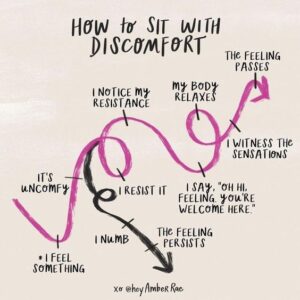Before we overcome our procrastination habits, let’s first buff up our vocabulary by reviewing the definitions of laziness, procrastination, and executive dysfunction. Then we’ll share several strategies to help overcome procrastination.
What is Laziness?
| lazy a: disinclined to activity or exertion : not energetic or vigorous b: encouraging inactivity or indolence Source: Merriam-Webster Dictionary |
Laziness is the voluntary unwillingness to exert necessary effort. The individual doesn’t want to do the task, so they choose not to. They don’t care if the task gets done or not, or they think someone else will do it, instead.
However, all too often we are quick to shame ourselves as “being lazy” when really we are procrastinating or experiencing executive dysfunction.
What is Procrastination?
Procrastination is the act of putting off a task. The individual wants to do the task but puts it off because it seems boring, time-consuming, difficult, etc.
“[Procrasatination is] a form of self-regulation failure characterized by the irrational delay of tasks despite potentially negative consequences.”
| The difference between laziness and procrastination can be discerned by the presence or absence of guilt or shame. If you experience guilt or shame for not completing the task, then it is not laziness. Rather it may be procrastination or even executive dysfunction. |
What is Executive Dysfunction?
Executive dysfunction refers to experiencing difficulty in transitioning tasks, sustaining attention and concentration, knowing what to focus on and when, working memory, planning, organizing, managing time, and other cognitive skills. This individual wants to do the task and intends to do the task at that moment but finds that they can’t because their brain is having difficulty transitioning between activities. This can also occur with tasks the individual finds enjoyable.
| The difference between procrastination and executive dysfunction can be discerned by the intent. Procrastination is the intent to put the task off. Meanwhile, with executive dysfunction, you may have the intent to start the task but find it difficult to transition to the new activity. |
How to Stop Procrastinating
Here are 6 strategies to help you overcome procrastination or executive dysfunction:
- Understand your triggers. What about the task triggers avoidant behaviors?
- Change your vocabulary. Change your “I should do this” statement into “When will I be ready to do this?” or “I choose to start this task now.”
- 2-minute Rule: if a task can be done in 2 minutes or less, do it straight away.
- 5-minute Rule: if you have a big task, tell yourself you’ll do the task for 5 minutes and take a break after if you want.
- Mind Activation Rule:
- Junebugging technique: choose a specific location or task and mentally tether yourself to this location or task. Do stuff in that task, let yourself get distracted, but remember your specific location/task and return to it.
Understand Your Procrastination Triggers
Procrastination is an avoidant behavior. We put the task off because something about it brings up emotions that we want to avoid—whether it’s our fear of failure, feeling overwhelmed, a lack of interest, etc.
When you find yourself procrastinating a task, lean into yourself with curiosity and empathy and ask, “What about this task triggers avoidant behaviors?” Identify and understand your triggers and work from there. Remember to be gentle with yourself.
Change Your Vocabulary
Procrastination and executive dysfunction often induce feelings of guilt or shame and can lead to us criticizing ourselves, even in subtle ways. The way we talk to ourselves matters, and if we’re constantly criticizing ourselves, how should we expect ourselves to perform well?
- Change the statement “I should do this” into a question: “When will I be ready to do this?” Listen to your answer with curiosity and empathy.
- If you find your answer is “I don’t want to do that thing right now,” follow up with “Okay, why not right now specifically?” and listen. You may find a reason or you may not find a reason. If you don’t, then try employing one of the three rules outlined below.
2-minute Rule
If you have a task that can be done in less than 2 minutes, then do it straight away.
| Tip: Try compounding annoying tasks that don’t take much effort with something pleasant or enjoyable. For example, listening to a podcast or audiobook while washing the dishes. |
5-minute Rule
Alternatively called the 10-minute Rule, the 20-minute Rule, or the 30-minute Rule. It depends on the length of time you want to set for yourself and what works best for you.
If you have a big task you have to do, tell yourself you’ll work for 5 minutes (or 10, 20, or 30 minutes) and work for that time. After the allotted time is up, you can take a break if you want to.
| Tip: The more effort you need to put into a task, the fewer stimuli–or distractions–you’ll want in your surroundings. |
Mind Activation Rule
If you feel like you’re in a slump or you’re feeling sluggish, do something to stimulate your mind.
Don’t Rely on Motivation
We may think that motivation is what drives us to complete our tasks, but motivation is fickle. What are we supposed to do when we don’t feel motivated?
Instead of relying on motivation, we should instead focus on building self-discipline, habits, and systems.
Junebugging Technique
For some people, they don’t intentionally put off tasks, but starting one task reminded them they had another task to do, which reminded them they had another task to do…and the cycle goes on until they feel overwhelmed and like they’ll never get anything done. When you experience this, try the junebugging technique:
The junebugging technique is a cleaning technique shared by a Tumblr user (here is the original post) based on the way Junebugs grip onto window screens. It’s based on location rather than focus.
- To begin, choose a location where you can get tasks completed today, and be specific (e.g. not “the bathroom” but “the bathroom sink.”) Mentally stick a pin in this location and imagine yourself tethered to this location. This is the center of your focus today; you will move around but this location is where you will keep coming back to.
- Begin a task in that location.
- Get distracted. Take a break.
- Remember you’re junebugging the bathroom sink and return to the location.
- Do more stuff in that location.
- Get distracted. Take a break.
- Remember you’re junebugging…and the cycle repeats.
Reminder
Remember that you won’t overcome procrastination just because you know the strategies or the reasons behind your procrastination. Overcoming procrastination is a process, and it’s a journey where you may take two steps forward on some days but one or three steps back on other days.
On the bad days, be gentle with yourself and look after your needs.
And, on the good days, congratulate yourself! It is hard work to overcome procrastination, so take a moment to acknowledge what you’ve accomplished!






